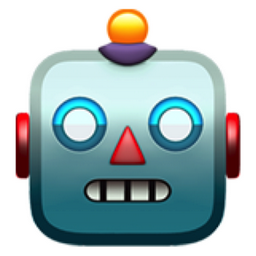Flmc
Models by this creator
🧠
DISC-MedLLM

42
The DISC-MedLLM is a large language model designed for conversational healthcare scenarios. It was developed by the Fudan-DISC lab and is a version of the Baichuan-13b-base model. The DISC-MedLLM is specialized for the medical domain, with training data focused on medical dialogues, knowledge graphs, and behavior preferences. This allows it to excel at tasks like medical consultations, treatment inquiries, and general health support. The DISC-MedLLM demonstrates several key features that distinguish it from general language models. It has strong medical domain knowledge, can engage in multi-turn conversations, and is aligned with human preferences for healthcare applications. This is achieved through the use of a goal-oriented training strategy and a framework that integrates large language models with human-in-the-loop techniques. Similar models include the DiscoLM German 7b v1 and Llama3-OpenBioLLM-70B, which also focus on specialized domains like German language and biomedicine respectively. However, the DISC-MedLLM is uniquely tailored for conversational healthcare tasks. Model inputs and outputs Inputs Medical dialogues**: The DISC-MedLLM is trained on a dataset of over 470k medical dialogue examples, which allows it to engage in natural, context-aware conversations about healthcare topics. Knowledge graphs**: The model also incorporates medical knowledge graphs, enabling it to provide reliable, fact-based information and recommendations. Behavior preferences**: The training data includes datasets focused on aligning the model's responses with human preferences for healthcare interactions. Outputs Medical consultations**: The DISC-MedLLM can assist users with a variety of medical inquiries, such as symptom descriptions, treatment options, and medication information. Health support services**: Beyond just factual responses, the model can provide high-quality guidance and recommendations tailored to the user's needs and preferences. Conversational capabilities**: The DISC-MedLLM can engage in multi-turn dialogues, allowing for more natural and comprehensive healthcare discussions. Capabilities The DISC-MedLLM excels at healthcare-related tasks due to its specialized training. It can provide detailed explanations of medical concepts, recommend appropriate treatments, and offer personalized health advice - all while maintaining a natural, conversational tone. For example, the model can break down the process of splitting a warfarin pill to achieve a specific dosage, or provide an overview of the anatomy and physiology involved in a particular medical condition. What can I use it for? The DISC-MedLLM is well-suited for a variety of healthcare-related applications, such as virtual patient assistants, telemedicine platforms, and consumer-facing health information services. By leveraging its deep medical knowledge and alignment with human preferences, developers can create engaging and trustworthy AI-powered healthcare solutions. For companies looking to monetize the DISC-MedLLM, potential use cases include: Integrating the model into healthcare apps or websites to provide intelligent medical support and guidance Developing conversational AI agents for hospitals, clinics, or insurance providers to assist patients with inquiries Powering chatbots or virtual assistants that can handle a wide range of medical-related questions and tasks The Fudan-DISC lab maintains the DISC-MedLLM and may be able to provide further guidance on commercial licensing and integration. Things to try One interesting aspect of the DISC-MedLLM is its ability to engage in multi-turn conversations. Rather than just providing one-off responses, the model can maintain context and coherence across a series of exchanges, allowing for more natural and comprehensive healthcare discussions. Developers could experiment with using the DISC-MedLLM in scenarios that require this level of conversational understanding, such as virtual consultations, symptom triage, or even mental health support. By leveraging the model's capabilities to understand the full context of a conversation, applications could provide more personalized and effective healthcare assistance. Another avenue to explore would be fine-tuning the DISC-MedLLM on additional datasets or for more specialized medical tasks. For example, the model could be further trained on electronic health records, clinical trial data, or pharmaceutical information to enhance its domain-specific knowledge and capabilities.
Updated 9/6/2024